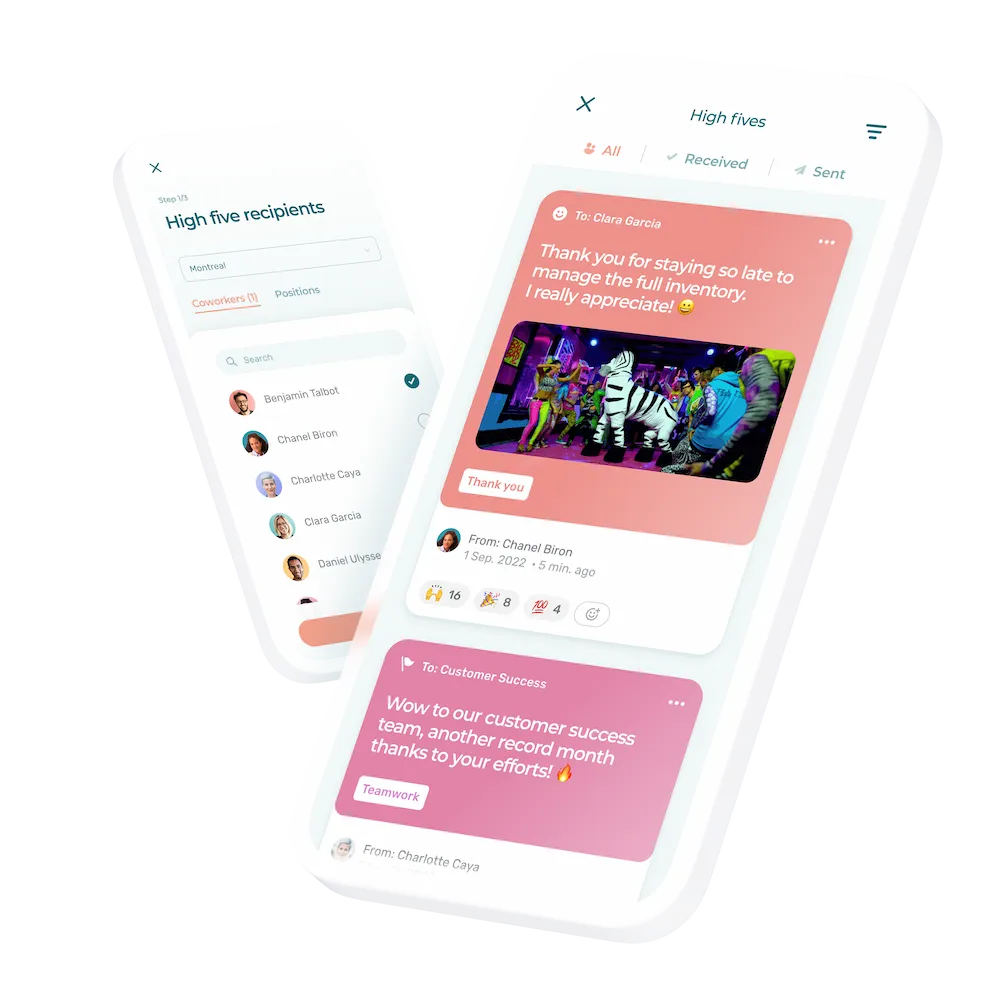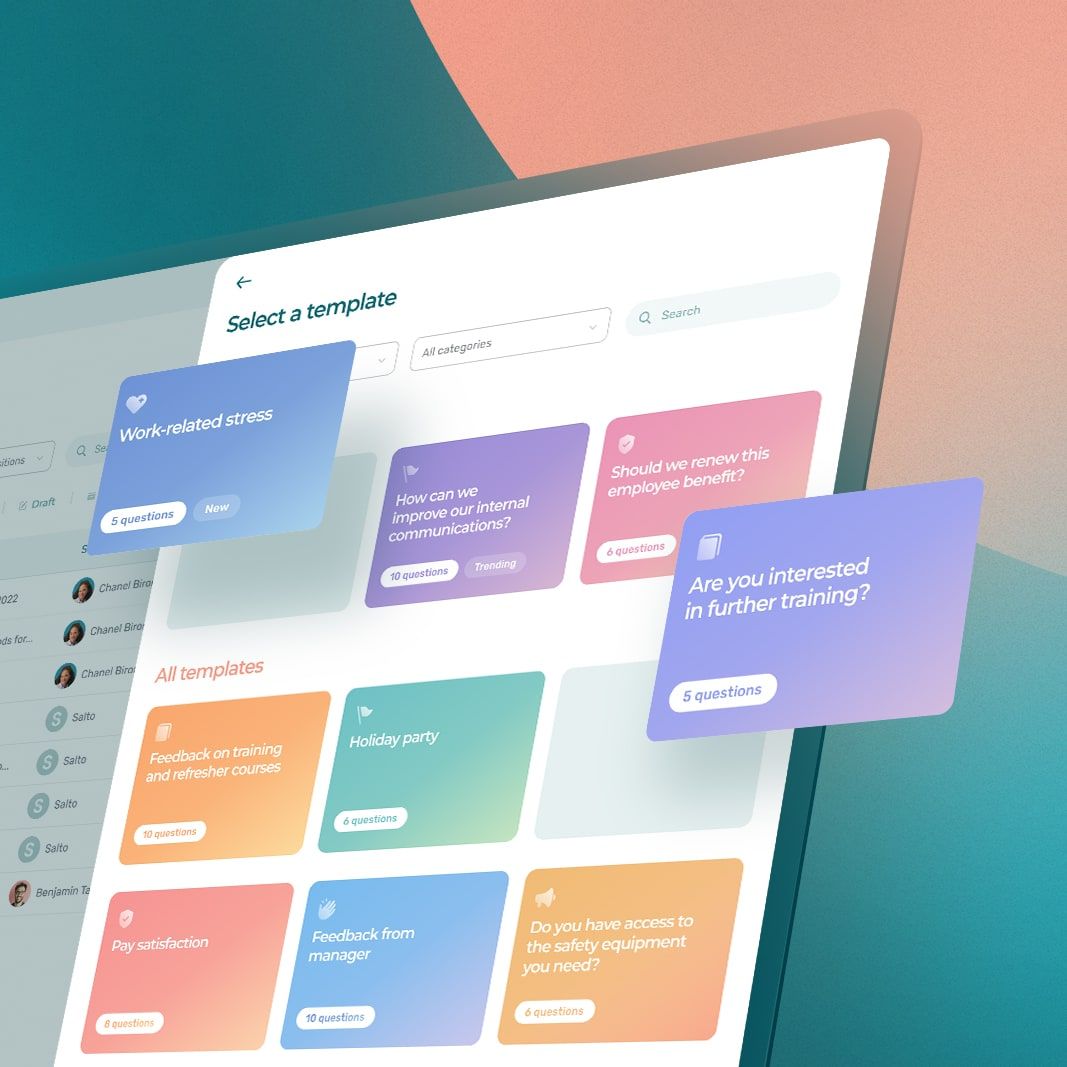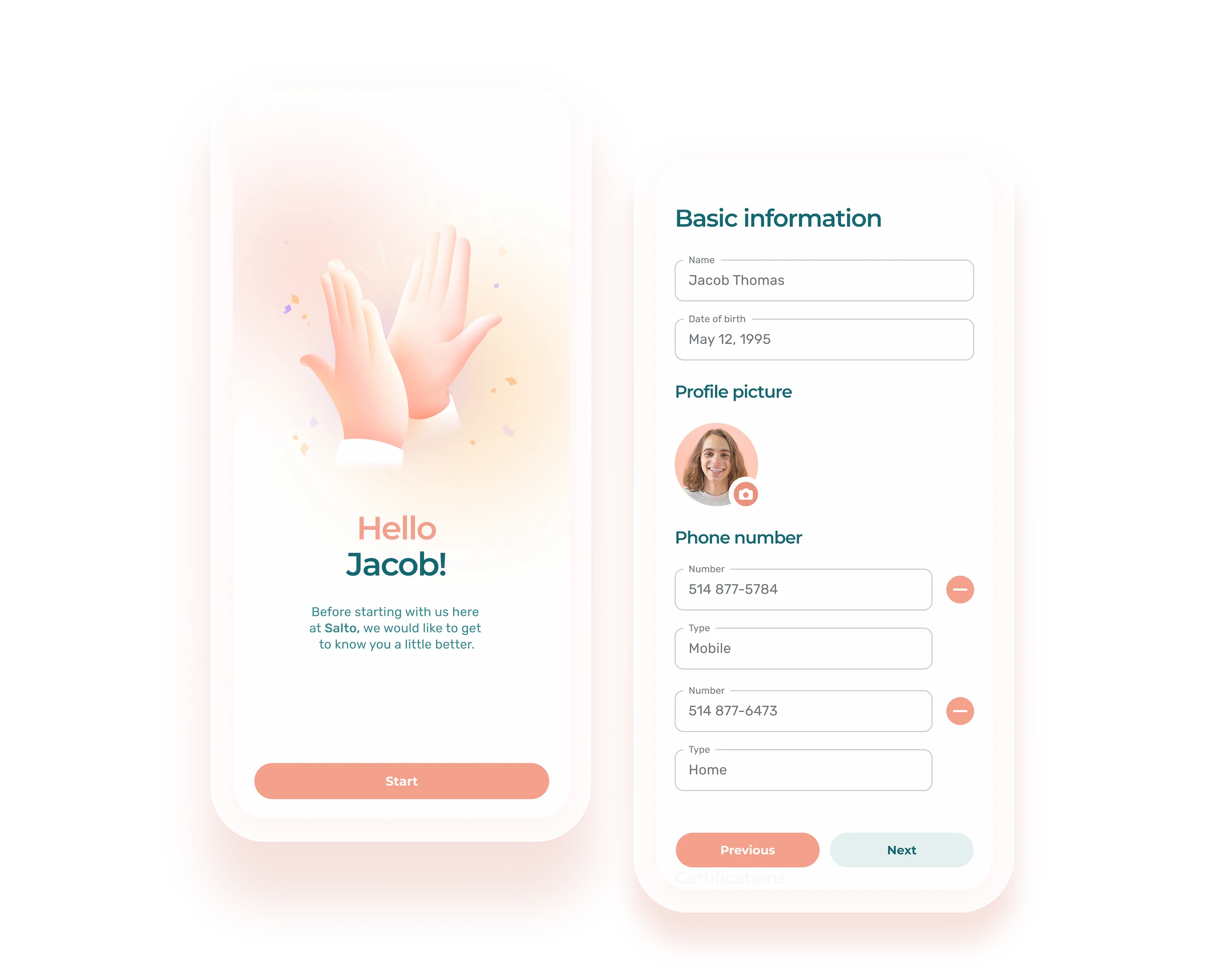Bad management can cause employees to seek other job opportunities and resign unexpectedly. Since many management mistakes are avoidable, learn how to identify them to prevent them more effectively.
Employee retention is a major challenge for frontline businesses such as restaurants, retail stores, pharmacies, and senior residences. While an acceptable turnover rate should be around 10%:
👉 The average turnover rate in Canada reached 15.5% in 2023
👉 Retail turnover jumped to 25.9% in 2024
👉 And for pharmacies, it stood at 18%
These figures illustrate a situation that thousands of managers face every day. Despite their efforts, employees leave their jobs, and it’s often hard to understand why.
It’s not always about salary or tough working conditions: sometimes, it’s simple – yet repeated – management mistakes that lead to overall poor management. Which ultimately leads employees to quit.
➡️ In this article, I’ll highlight 8 examples of bad management that drive employees away—and, most importantly, how to avoid them with practical steps.
8 Bad Management Practices Leading Your Employees to Seek Another Job
1. Ignoring the Impact of Work Schedules on Personal Life
Why It’s a Bad Management Habit
Unpredictable or rigid schedules harm work-life balance, leading to frustration and disengagement.
Retail and restaurant workplaces tend to make this issue even worse, as schedules often change weekly.
How to Avoid This Bad Management Habit
- Involve employees in schedule planning: let them apply for open shifts and replacements.
- Offer flexibility when possible: allow your staff to swap shifts among themselves to better align their schedules with personal needs.
🗓️ Agendrix allows employees to submit availability and preferences, for fair and transparent work scheduling. Allow shift swaps with or without manager approval, based on criteria set by your organization.
2. Failing to Explain Organizational Changes or Decisions
Why It’s a Bad Management Habit
Lack of communication about business decisions can lead to distrust and dissatisfaction. In retirement homes or healthcare settings, where work reorganization can be frequent, employees need to understand the “why” behind these changes.
How to Avoid This Bad Management Habit
- Clearly communicate the reasons for decisions: what may seem like routine decisions could have negative repercussions in teams that resist change.
- Encourage questions and dialogue: don’t just disappear into your office or in the backstore after an important announcement. Make yourself available to answer any further questions your employees may have.
📢 Use Agendrix to send important announcements to the entire team, ensuring consistent communication and avoiding rumors.
3. Failing to Praise Good Results
Why It’s a Bad Management Habit
Lack of recognition is a common management mistake that undermines motivation and team engagement.
In service industries, where efforts can sometimes go unnoticed (ex.: helping a colleague during the rush period, serving a difficult customer), recognition becomes essential.
How to Avoid This Bad Management Habit
- Celebrate successes, even the small ones: why not encourage your employees to send thank-you messages to each other regularly?
- Personalize recognition messages: identify and thank all contributors to a successful effort. Whether it’s the entire team or several employees from different departments.
🌟 With Agendrix High Fives, highlight employee achievements at the right time and share them with the whole team.
4. Neglecting Continuous Feedback
Why It’s a Bad Management Habit
Employees who don’t receive regular feedback may stagnate and fail to improve. Receiving constructive feedback from their manager is a crucial part to help them grow. This is even more important for younger employees who are just starting out and are constantly seeking suggestions to guide their development.
How to Avoid This Bad Management Habit
- Plan regular check-ins to discuss performance: these meetings don’t always have to be formal. Regularly take the pulse of the team to assess workload, overall sentiment, and task progress.
- Encourage employees to share their ideas and concerns: provide a feedback system (anonymous or not) to gather input from your team.
📝 Surveys in Agendrix make it easy to collect employee feedback, fostering a culture of continuous feedback. Survey your employees on various topics you’ve predefined.
5. Ignoring Signs of Disengagement
Why It’s a Bad Management Habit
Frequent absences and repeated lateness negatively impact both company operations and team morale. These signs of disengagement can often lead to unexpected resignations. They can even result in the departure of hard-to-replace talent, who are exhausted from taking on the extra workload caused by the absence of colleagues.
Ignoring signs of disengagement can be costly for your company.
How to Avoid This Bad Management Habit
- Be attentive to changes in behavior: has any employee been frequently late recently, when they used to arrive early? Try to identify the cause and adjust their work schedule if there’s a conflict with new personal constraints, for example.
- Address concerns quickly and with empathy: try putting yourself in your employees’ shoes when they share their worries. What would you do if the same situation happened to you? Active listening allows you to identify issues that need to be defused.
📊 Agendrix’s attendance reports help track absences and managers can intervene promptly.
6. Neglecting New Employee Onboarding
Why It’s a Bad Management Habit
The onboarding process helps new hires integrate their team. When onboarding is poorly planned and lacks proper support, new employees struggle to find their footing in an unfamiliar work environment.
A sloppy onboarding also impacts existing staff, who often have to pick up the slack. This can lead to an unexpected increase in workload, extra stress, and a decline in their own long-term engagement.
How to Avoid This Bad Management Habit
- Implement a clear, structured onboarding plan: don’t leave anything to chance. Map out each step—from the first day and first task to the sharing of internal practices, and so on.
- Assign a mentor or onboarding buddy to guide new hires: there’s nothing like feeling welcomed and valued on your first day. A buddy can pass along informal know-how and answer the questions new hires might not feel comfortable asking their manager (How do breaks work? Is the coffee free?).
🤝 With Agendrix, track every step of your onboarding process, such as sharing key documents (contract of employment, dress code, void cheque), ensuring a smooth start for new employees.
7. Lacking Transparency Around Growth Opportunities
Why It’s a Bad Management Habit
Employees need to see a clear path for growth, whether short-term, medium-term, or long-term, within your organization. Even for part-time or student workers, offering personal development or advancement opportunities boosts retention by helping them feel valued.
Failing to plan for professional development can quickly lead to a sense of stagnation, which weakens employee engagement. Lacking possible growth potential is a common management mistake that holds your team back.
How to Avoid This Bad Management Habit
- Talk regularly about development goals: as employees gain experience, are they interested in building new skills like leadership, communication, or mentoring? Ask what they’d like to work on or explore further.
- Offer training and promote from within: empower your team with knowledge that helps them do their job better (like seasonal menu updates at your restaurant or new gear in your sporting goods store). Encourage participation in required training (like first responder certification) with small incentives. Celebrate internal promotions as a team.
🎓 With Agendrix, you can easily document your team’s skills and aspirations—so nothing gets lost and everyone stays on track with their professional growth.
8. Ignoring Employees’ Mental and Physical Well-Being
Why It’s a Bad Management Habit
Unmanaged stress often leads to burnout. This is especially true in fast-paced environments like restaurants and retail, where high expectations and pressure are the norm.
Toxic workplace dynamics—such as favoritism, bullying, or unresolved conflict—can further increase stress and damage team morale. It’s the manager’s responsibility to recognize these issues and address them quickly to maintain a healthy work environment.
How to Avoid This Bad Management Habit
- Support balance and well-being: encourage regular breaks. Make sure overtime doesn’t become standard practice. Adjust schedules to accommodate personal needs when possible.
- Provide access to mental health support: offer employee assistance programs, organize stress management workshops, or encourage mental health days when needed. Set the tone by using and promoting these tools yourself.
💖 Agendrix helps track scheduled vs. actual hours worked, as well as break times, so managers and shift leads can ensure everyone takes proper breaks. Your employees get the rest they need—when they need it.
The Ball Is in Your Court
As a manager, you constantly face a defining choice:
- Continue to practice—sometimes unknowingly—poor management habits that weaken your team.
OR
- Choose to lead with empathy by taking a proactive approach that is aligned with your employees’ reality.
The first path leads to frustration, burnout, and costly turnover.
The second builds engaged, high-performing, and loyal teams.
💡 Which path will you take to avoid common bad management habits?
Key Takeaways
✅ Bad management habits may seem small, but they directly impact employee motivation, performance, and retention.
✅ Fair scheduling, open communication, employee recognition, and real support for well-being make all the difference.
✅ By addressing your bad habits today, you lay the foundation for a more engaged, loyal, and high-performing team.
✅ Agendrix is your partner in building better management habits and strengthening your organizational culture.
How to Tell if an Employee Is Thinking About Quitting?
A drop in motivation, frequent lateness, disengagement in meetings, or a more distant attitude are often warning signs. These behaviours are sometimes the direct result of small management mistakes that build up over time.
Which Bad Management Habit Is Easiest to Fix?
Poor communication is often the easiest to correct. For instance, failing to explain an organizational change or missing an opportunity to highlight a team win are easy to fix.
How to Change Bad Management Habits?
Self-reflection is key—but having the right tools makes all the difference. Employee scheduling and management software like Agendrix helps centralize your management practices and maintain consistency across the board.
Can a Better Schedule Really Improve Employee Retention?
Yes. Taking employee availability and preferences into account helps reduce stress and turnover, in addition to boosting long-term engagement.
Is It Worth Using a Tool Like Agendrix for a Small Team?
Yes. Bad management habits aren’t about team size—they’re about management structure. Agendrix helps prevent oversights and builds a solid foundation for growth.

















